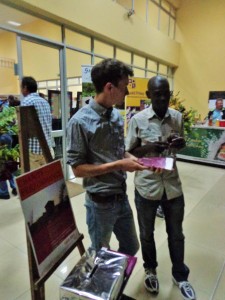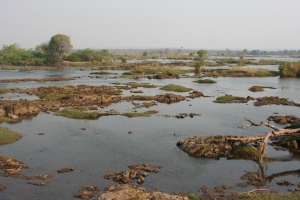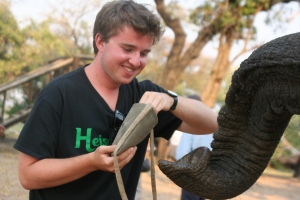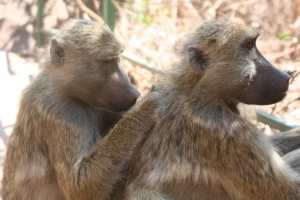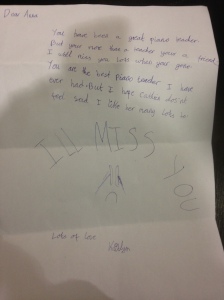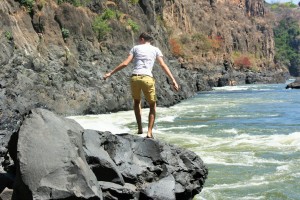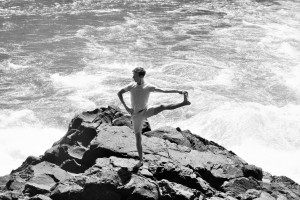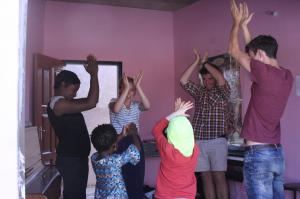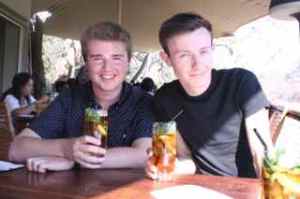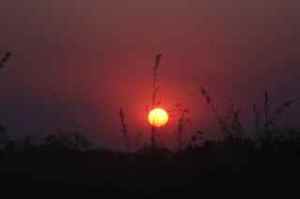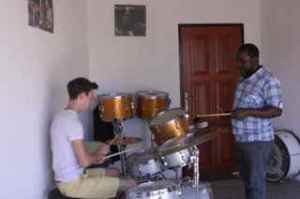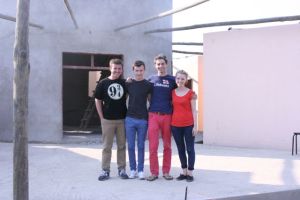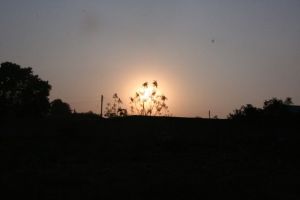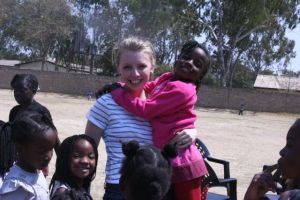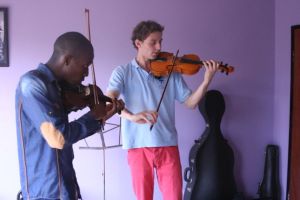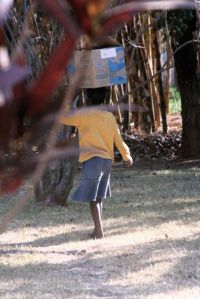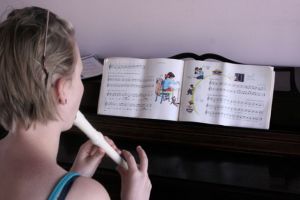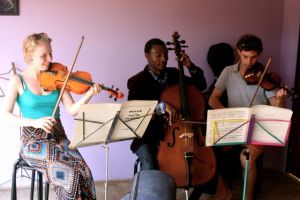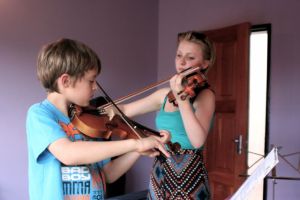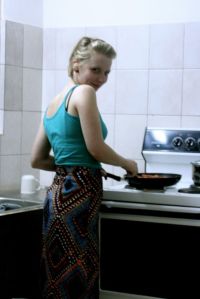Alex and I have finally come to the end of our stay in Zambia. We managed to pack our last few days with challenges, fun and, naturally, music.
For Friday evening Estelle trustee Deirdre found us a gig at an Art Auction to raise funds and awareness for the Ngoma Dolce Academy and to give the teachers a chance to perform. The three hour slot was well straddled thanks to the Will’s cruise-piano expertise and Alex’s superb ear for noodling. We made a total of 1429 KWV (or Kwacha), to be put towards resources at the academy. The evening’s musicking was followed up with a visit to Indian Restaurant Dil where, for the first time since our arrival in Zambia, food was served within 25 minutes of ordering. Yum yum.
The weekend featured further culinary highlights including a Braii (that’s an African Barbeque) at home with newlyweds Paul and Violet; I am told the T-Bone steak was delicious and it was lovely to get to know the staff in a non-professional capacity, serving to make our imminent separation more poignant.
The new week brought with it the new project of providing music workshops for large groups at Lusaka’s Mulele Mwana school. For this task we were reunited with Peter Lewski, our Peace Corps friend from Boston/ “The Bush”, who was invaluable as a persuasive force in the staff-room, Bemba-speaker and connoisseur of local Wifi hotspots. A two hour workshop was prepared for Monday morning and afternoon dedicated to singing, clapping and instrument demonstrations. Despite rumours that Zambian children would fall naturally into harmony, it became apparent that many of the children had very little exposure to singing. A few children stood out as confident and enthusiastic singers, but our collaborative efforts helped to engage all in varied activities which spawned, at times, raucous excitement.
The second day of workshops saw increased attendance. Also great was the enthusiasm the children brought, but maintaining control and interest in a classroom of 45 aged between eight and eighteen was knackering. Still, hilarity ensued following Merce Cunningham-inspired warm-ups and we were able to teach the basics of reading music. Following the afternoon break two groups of girls came forwards asking if they could perform to the class; the first sang an endearing rendition of “When Jesus Say Yes (Nobody Can Say No)”, and the second a song wishing us farewell as we said our goodbyes.
That night we came together with the Academy teachers in Lebanese restaurant Mezza (in Pete’s words “unmissable”) for a last supper. I struggle to recall much about our interactions since I was having trouble taking my mind off the copious amounts of garlic and olive oil to be consumed, but I’m pretty sure the conversation was good and that a good time was had. A bar trip followed, during which we got to know better the Academy administrator Dee’s extra-musical interests and aspirations; football, travel and politics featuring prominently. Her parting words “I’ll see you again sometime. In Zambia, or the UK… or the next life,” were tongue in cheek, but highlighted the real possibility of never returning to Lusaka if we don’t make a concerted effort. I seriously hope we get to go back and pursue the cause and our friendships further, but for now I’m happy to offer what advice I can over the web.
